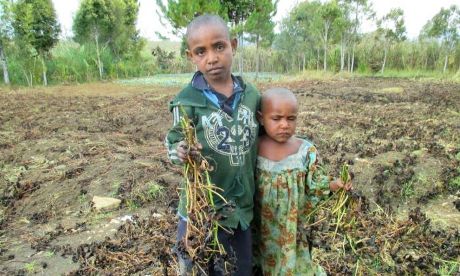In Papua New Guinea a long drought is over, but some two million people are affected by a lack of food and clean water.
Typhoid and skin diseases are rife, malnutrition is on the rise, while, in remote areas, schools and medical centres have been shut down because there is no clean water.
Drought and frosts have wiped out subsistence crops in PNG’s highlands, where villagers are facing months without food if they do not receive help.
Mt Hagen’s Archbishop Douglas Young described the situation as dire with thousands of highland people in distress as their food gardens were destroyed, and now floods were having an impact.
“First it was frost and drought, now heavy rain and flooding,” he said.
“It’s one extreme to another.
“Across the archdiocese, most of my people are short of sweet potato so they are short of their staple.
“In the high risk, high altitude areas it will be months before the next crop comes on line.”
About one million people live in PNG’s highlands.
Many people live in isolated villages with no means of transport in or out. This is also the case in border areas like the vast Western Province.
“The real issue is whether people have roads. It is the remote areas that don’t participate in the cash economy they are most affected,” Archbishop Young said.
“If they are able to market other crops, they are able to get money and buy the food they need.”
Archbishop Young said getting emergency food to remote villages was slow, and government distribution attempts were “not very successful”.
“The Government is stuck with bureaucrats,” he said.
“We were able to use our parish structure – people on the ground everywhere, volunteers and service providers.
“But sometimes the logistics overwhelm everybody. The cost of transport is twice as much as the food itself.”
Sources
- Catholic Leader
- Image: ABC
